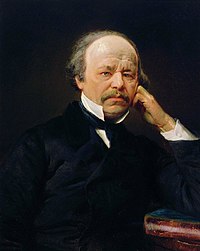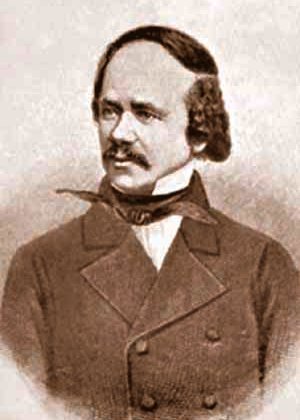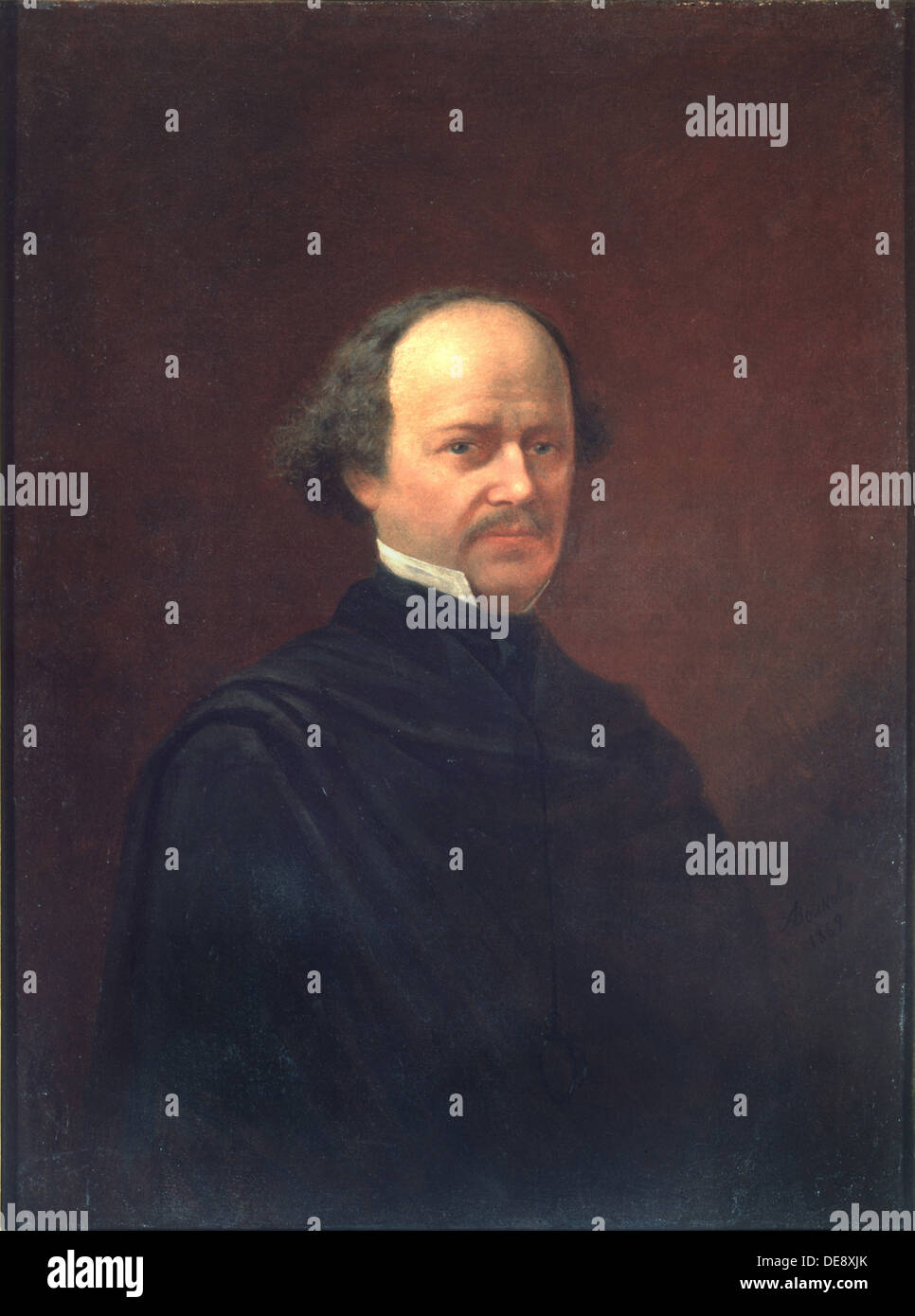Alexander Dargomyzhsky
Alexander Sergeyevich Dargomyzhsky (Russian Александр Сергеевич Даргомыжский, scientific transliteration: .. .. Aleksandr Sergeevič Dargomyžskij; * 2.jul / 14 February 1813greg in Dargomysch in the government of Tula; † 5 Januarjul / 17 January 1869greg in Saint Petersburg ) was a Russian composer.
Life
After Dargomyschskis family had moved in 1817 to St. Petersburg, he received his first musical training from his German governess, then by a music teacher named Danilevsky and finally by Franz Schoberlechner, a pupil of Johann Nepomuk Hummel. Professionally, he followed his father's footsteps and entered the civil service in the fall of 1827. Like many young men of his profession he regarded music initially as a leisure activity, also released a number of smaller vocal works, mostly for female voices, but did not receive any music theory training.
Until the winter of 1833-1834 he was introduced to Mikhail Glinka, who loaned him the note books with exercises in figured bass and counterpoint, which he himself had studied with Siegfried Dehn. With Glinka Dargomyzhsky played piano duets, organized concerts and analyzed the symphonies of Beethoven and Mendelssohn overtures. He decided to follow the example of his teacher and write a complete opera. Dargomyzhsky was an admirer of French literature, and his first opera was Esmeralda, a setting of the historical novel Notre- Dame de Paris by Victor Hugo. But as the Russian opera was dominated at that time by Italian works, he had to wait until 1847 to the premiere of his opera in Moscow, also recorded little success until 1851 and its St. Petersburg premiere experienced in the Opera House.
1843 Dargomyzhsky stepped suddenly back from the government service and went in September 1844 a trip abroad. In Brussels, he was introduced Fétis, and in Paris he met Auber, Meyerbeer and Halévy. How Glinka ten years before he first discovered abroad the advantages of his own culture; after his return in May 1845, he wrote to a friend: " There is no better people in the world than the Russian, and if there are elements of poetry in Europe, then in Russia." His thorough study of the Russian folk song led to the writing of the opera Rusalka, which was completed in 1855. A third dramatic work, the cantata The ballet Bacchanale, was completed in 1848, but not until 1867 did ( also in Moscow) to the performance.
Dargomyzhsky died on January 17 ( New Style), 1869 in Petersburg, his permanent residence, leaving behind an unfinished opera The Stone Guest ( Pushkin ), whose drafting two of the most talented younger composers of Russia, Nikolai Rimsky- Korsakov and César Cui took over, .
Dargomyzhsky is rightly regarded as one of the worthiest representatives of national- Russian opera and has contributed significantly to their education. He wrote orchestral works, operas and songs that bear a pronounced national and realistic character.
Works
- Esmeralda, opera, 1839
- Rusalka, opera, 1855
- The Bacchanale, cantata, 1848
- Bolero, for orchestra, 1839
- Fantasy Scherzo " Baba Yaga ", for orchestra, 1862
- Small Russian Cossack Dance, for orchestra, 1864
- Fantasy by Finnish subjects, for orchestra, 1867
- The Stone Guest, opera, unfinished 0.1868 to 69, completed by Cui and Rimsky -Korsakov, premiere February 28, 1872 in St. Petersburg
- Numerous songs, such as " The Worm", " The titular ", "The Old Corporal ", etc.
- Smaller Pieces for Piano and variation works










